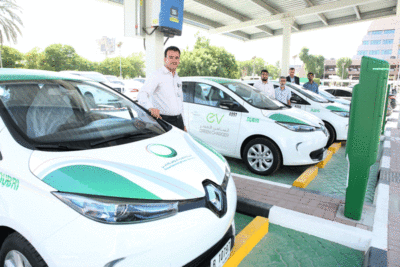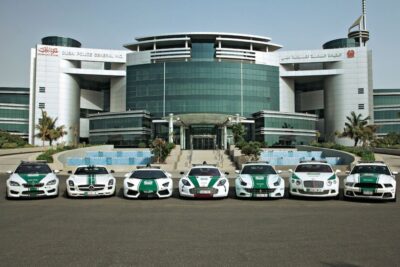
Dubai, the largest and most populous city in the United Arab Emirates, has made significant strides in embracing sustainable technology in recent years. One area where this is particularly evident is the growth of electric cars in the city. As part of its commitment to reducing its carbon footprint and promoting clean energy, the Dubai government has implemented several initiatives to encourage the use of electric vehicles (EVs) in the city.

One of the key factors driving the growth of electric cars in Dubai is the government’s push to reduce greenhouse gas emissions. The Dubai Clean Energy Strategy 2050, launched in 2015, aims to increase the share of clean energy in the city’s total energy mix to 75% by 2050. As part of this strategy, the government has set a target to have 10% of all vehicles in Dubai be electric by 2030.
To achieve this goal, the government has implemented several incentives to encourage the adoption of electric cars. For example, electric vehicle owners are exempt from paying road tolls and registration fees, and they also receive free parking in designated areas. In addition, the Dubai Electricity and Water Authority (DEWA) has installed over 300 public charging stations across the city to make it easier for EV owners to charge their cars.
These incentives have helped to create a growing market for electric cars in Dubai. In 2021, it was reported that sales of electric cars in the UAE had increased by 280% compared to the previous year, with Dubai accounting for the majority of these sales. The city’s commitment to sustainability and the availability of incentives and infrastructure have made it an attractive destination for EV manufacturers looking to expand their reach in the Middle East.
Several car manufacturers have already entered the Dubai market with their electric cars, including Tesla, Nissan, BMW, and Porsche. In fact, Dubai has become one of the key markets for Tesla in the Middle East, with the company opening its first service center in the city in 2017. Other manufacturers have followed suit, with BMW and Porsche also opening showrooms and service centers in Dubai to cater to the growing demand for electric cars.
The growth of electric cars in Dubai is not limited to private vehicles. The city has also introduced electric buses for public transportation, with plans to add more in the coming years. In addition, Dubai’s taxi service has introduced a fleet of electric taxis, providing residents and tourists with a clean and sustainable mode of transportation.
In conclusion, the growth of electric cars in Dubai is a positive development for the city’s sustainable future. The government’s commitment to reducing its carbon footprint, coupled with incentives and infrastructure to support electric vehicles, has created a thriving market for EV manufacturers in the city. With the continued expansion of the electric car market and the implementation of new initiatives, Dubai is well on its way to achieving its target of having 10% of all vehicles in the city be electric by 2030.

